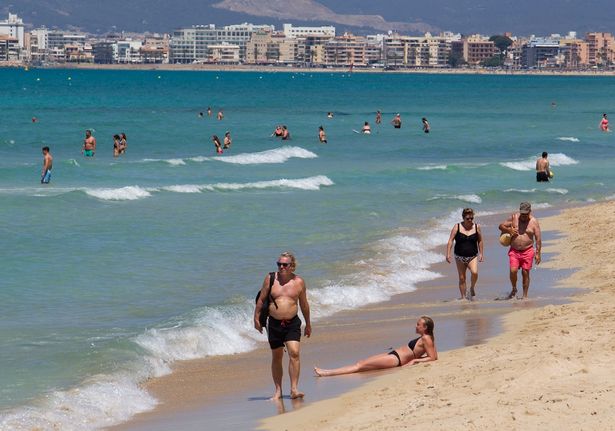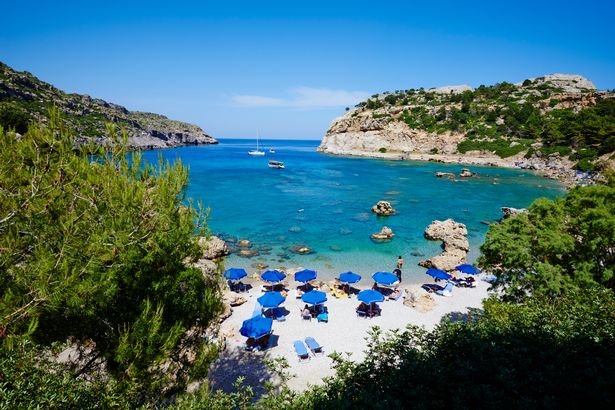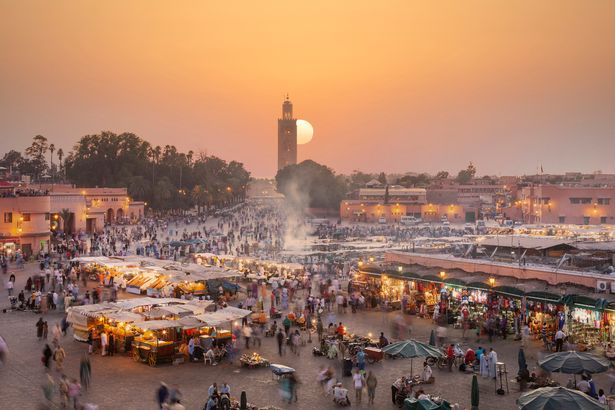Several key holiday hotspots are still welcoming Brits for stays abroad this summer.
As of 4am this morning, Portugal has been bumped to the amber travel list, spelling the end of just three and a half weeks of relatively stress free travel to the European country.
Now people travelling back from Portugal to the UK must isolate for 10 days and follow a stringent testing regime.
The green list now consists of Australia, Brunei, the Falkland Islands, Faroe Islands, Gibraltar, Iceland, Israel, New Zealand, Singapore, South Georgia and South Sandwich Islands, St Helena, Ascension and Tristan da Cunha.
However, several of those countries, including Australia and New Zealand, are not welcoming Brits, meaning their green status is irrelevant for would-be holidaymakers.
There are numerous countries on the amber list that have opened their doors to British tourists however.
Before hastily booking a week off work and a cut-price Ryanair flight, it’s crucial to note that you could be at risk of losing a lot of money if you travel to an amber list country – especially if the Foreign, Commonwealth and Development Office (FCDO) advises against travelling there.
If you have insurance but your holiday destination changes to amber before departure, your insurance will no longer be valid.
With those warnings made, here are some of the holiday hotspots still willing to let Brits in
Spain

(Image: AFP via Getty Images)
Pedro Sanchez announced at the end of May that travellers from several countries, including the UK, would be allowed in for holidays.
The Spanish PM said he was “delighted to welcome all UK tourists”.
He added: “They are welcome to enter our country without restrictions and without health requirements.”
However, the FCDO is currently advising against “all but essential travel to Spain, including the Balearic Islands but excluding the Canary Islands, based on the current assessment of Covid-19 risks”.
France

(Image: NurPhoto via Getty Images)
The French border will reopen on June 9, allowing fully vaccinated Brits and EU passport holders based in the UK into the country without any proof of testing at all.
Until tomorrow, anybody entering France from the UK requires a ‘compelling reason’ for being in the country.
The acceptance by French border officials of an antigen test, as opposed to the far expensive PCR (Polymerase Chain Reaction) is also highly significant.
It will mean that travellers can avoid paying £100 plus to a private firm for a PCR test, and instead opt for an antigen test, which is often free.
Unsurprisingly however, the FCDO currently advises against “all but essential travel to the whole of France based on the current assessment of Covid-19 risks”.
Greece

(Image: Getty Images)
Although some experts had predicted Greece could go onto the green list, the nation and its archipelagos remain amber.
As a result, those returning from the country must self-isolate at home for 10 days and take the relevant tests.
The FCDO is currently advising against “all but essential travel to Greece, except for the islands of Rhodes, Kos, Zakynthos, Corfu and Crete, based on the current assessment of Covid-19 risks”.
Greece, however, is allowing Brits to visit the country if they have been vaccinated or if they can provide evidence of a negative Covid-19 test.
Malta

(Image: Getty Images/iStockphoto)
Malta has been letting Brits in since June 1, so long as they have proof they were fully vaccinated at least 10 days before arriving in the country.
Malta Tourism Authority UK and Ireland director Tolene Van Der Merwe said: “Malta is a very popular destination for British holidaymakers and is a key contributor to Malta’s economy, so we are excited to welcome back fully vaccinated travellers from the United Kingdom from 1 June 2021.
“The people of Malta are looking forward to tourists returning who have loved our sunshine, culture, food and warm spirit year in year out.”
The country remains on the UK’s amber list, however.
Morocco

(Image: Getty Images)
On Sunday the north African country announced it will reopen its airports and ports to international passenger traffic from June 15, both for its own citizens and foreign nationals.
All travellers will be admitted into the country if they have been vaccinated against Covid-19 or had a negative PCR test.
Nationals of countries where coronavirus cases are surging, or there is not reliable data, will have to provide a special permit to enter Morocco and have a negative test, the authorities said.
Despite indications the country may be reclassified as green, it is still amber.
Portugal

(Image: Getty Images)
Despite its newly found status on the UK’s amber list, Portugal is still rolling out the red beach mat for incoming sunseekers.
The country maintains that Brits can continue visiting for leisure purposes, so long as they follow entry requirements.
“All passengers, excluding children up to the age of two, travelling to or through mainland Portugal in transit, must show a negative RT-PCR test result for SARS/COVID-19 at the time of boarding,” explains the FCDO.
“The test must have been taken within 72 hours of departure. Your airline is likely to deny boarding if you cannot provide this at check-in. Check with your airline before you travel.”


